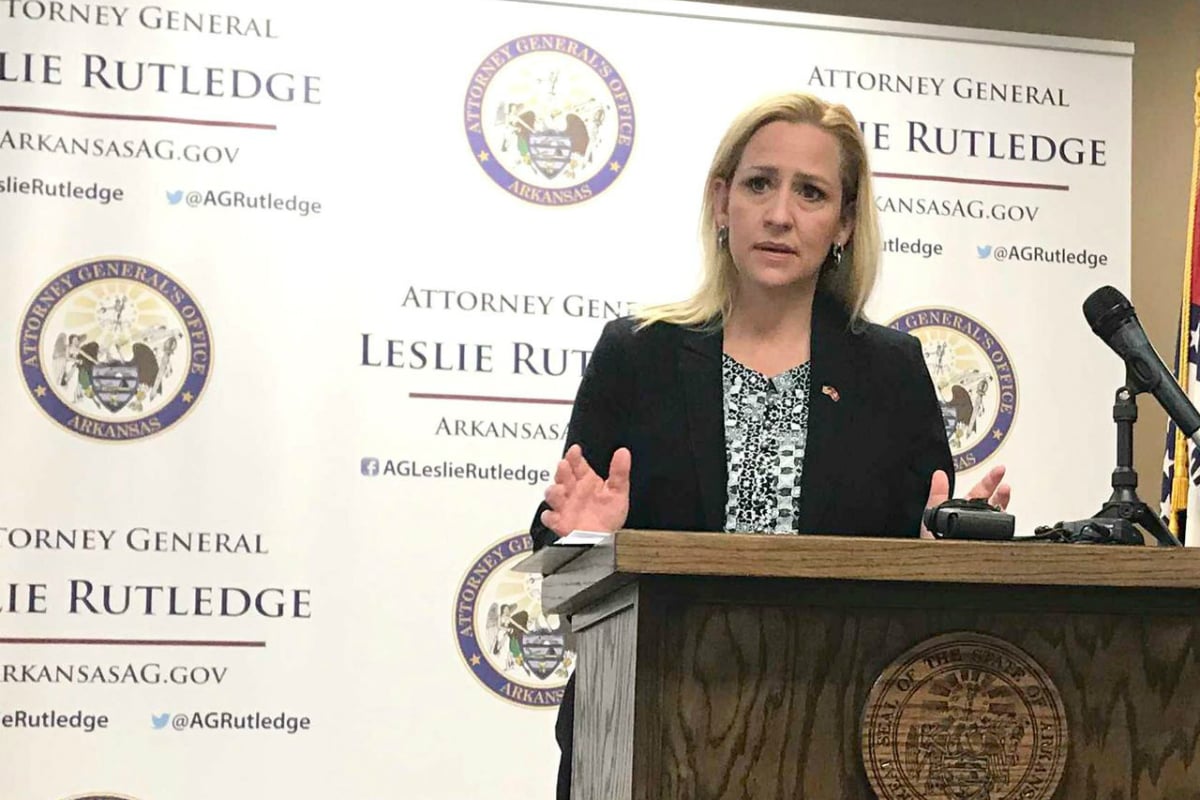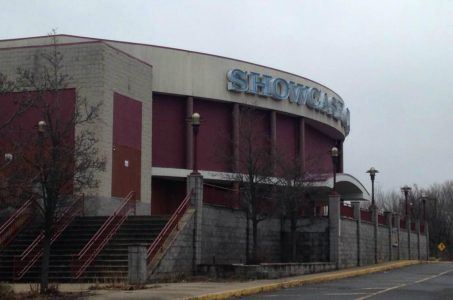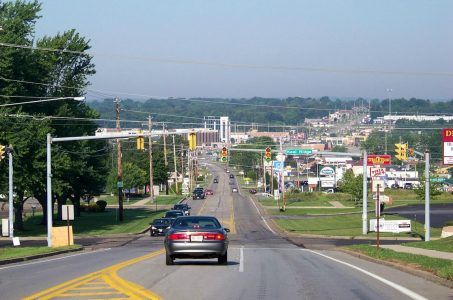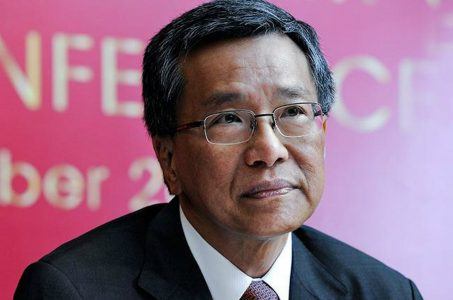Arkansas Attorney General to Intervene in Pope County Casino License Dispute
Posted on: June 25, 2020, 08:32h.
Last updated on: June 25, 2020, 01:44h.
Arkansas Attorney General Leslie Rutledge’s office will work with the state Racing Commission to determine the next steps in resolving the licensing dispute for the Pope County casino.

On Monday, the Arkansas Racing Commission (ARC) ruled against one of its own. Six commissioners voted that Commissioner Butch Rice had a bias in his scoring of the casino proposals from Cherokee Nation Businesses and Gulfside Casino Partnership.
Rice gave Gulfside a perfect 100/100 score for its $254 million project that would feature a 500-room hotel and casino floor with 1,900 slot machines and 90 table games. He scored the Cherokee plan a 29/100 for a $225 million outline with a 200-room hotel and casino with 1,200 slots and 32 tables.
After the ARC disqualified Rice’s scores on Monday, the state gaming regulator must now remedy its actions. To provide a legal framework for how to proceed, the commission will work with Rutledge’s office.
“The 30-day time frame in which a license must be issued was initiated June 18 when the Commission declared scoring complete,” said Scott Hardin, a spokesman for the state Department of Finance and Administration, which oversees the Arkansas Racing Commission. “We anticipate the Commission will meet by early July to make a determination on next steps within the 30-day period.”
Rice was adamant Monday that he had no bias. In emotional testimony, the trucking industry executive said he’s “not smart enough” to try and single-handedly assure that Gulfside would win the license.
Casino Courtroom Battle
Rice’s scoring heavily favoring Gulfside by a 71-point margin over the Cherokee plan brought the cumulative score of the two proposals to 637-572. With Rice’s scores removed, the tally comes to 543-537 in favor of the Cherokees.
Commissioners asked legal representatives from the state what their options are. Deputy Attorney General Brian Bowen answered, “You’re going to be sued no matter what decision you make by one party or another.”
Attorneys representing the two casino plans were quick to respond to the meeting outcome.
“Their [ARC] options are severely limited by the rules that are now in place,” Attorney Dustin McDaniel, representing the Cherokees, said. “According to the rules, the license must be issued 30 days from June 18th. It would be impossible to pass any new rule, even on an emergency basis, within the next 25 days. It appears that their only real option is to remove the disqualified score from the panel’s award of points and let the appeals proceed.”
Gulfside Casino Partnership counsel Lucas Rowen voiced other concerns.
“As the majority of the commissioners recently affirmed, Gulfside is the best choice for Russellville, Pope County, and Arkansas,” Rowen said. “While others want to protect out-of-state interests, our River Valley Casino Resort is focused on supporting Arkansas with more jobs, more entertainment, and 50 percent more annual gaming tax revenue.”
Along with Rice, three other commissioners voted in favor of Gulfside. Three commissioners voted in favor of the Cherokee Nation.
Rutledge Fought Against Casinos
In 2018, Rutledge rejected several ballot initiatives to put the issue of casino gambling before voters. Her office denied the campaign efforts on grounds that their wording and definition of the term “casino gambling” was confusing and would “inevitably lead to confusion.”
After a fourth rejection, a pro-casino group filed a lawsuit against Rutledge on claims that she had an “unnecessarily burdensome standard” with reviewing casino measures. Rutledge finally budged in May of 2018, and voters approved a casino license in Pope and Jefferson counties during the election later that year.
Along with the two new commercial casino licenses, the ballot referendum allowed the state’s two racetrack casinos – Oaklawn and Southland – to transition into full-scale casinos with slot machines and table games.
Related News Articles
Connecticut Satellite Casino Blueprint Leaves Some Locals Underwhelmed
Genting Group Focused on Japan, Predicts ‘Fierce’ Bidding War
Most Popular
LOST VEGAS: The Foster Brooks Robot at MGM Grand
Bally’s Sets Date for Tropicana Las Vegas Implosion & Party
Most Commented
-
VEGAS MYTHS RE-BUSTED: You Don’t Have to Pay Resort Fees
— August 2, 2024 — 16 Comments -
VEGAS MYTHS RE-BUSTED: Elvis Was a Straight-Up Racist
— August 9, 2024 — 11 Comments -
ANTI-SOCIAL BEHAVIOR: Vegas Casino Buffet Stunt in Poor Taste Goes Viral
— August 16, 2024 — 7 Comments -
VEGAS MYTHS RE-BUSTED: The Strip Tried Appealing to Families and Failed
— August 23, 2024 — 7 Comments
















Last Comments ( 9 )
Wow - such a hard decision!! Any idiot could do this!! One operator (Gulfside) has been involved in several lawsuits & bankruptcies, is already in debt & will have to try to borrow the money to build their casino - more debt - they offer nothing to our community except a "casino", which will only be open to people 21 & older so forget bringing your kids to any of the restaurants, any of the entertainment they may have, even staying in their hotel. They have no support from the County Judge or the Quorum Court. They have never made any attempt to present their application to the community, nor have they ever responded to questions asked by some people of the community. They have made no attempt to introduce themselves to the community. They lied on their application that they have never been involved in any lawsuits or bankruptcies, or that they have been banned from the state of Texas & were recently denied a permit to build in Mississippi. On the other hand, you have an operator (Cherokee/Legends) who is debt-free, has the money to begin building immediately, has a spotless reputation without lawsuits or bankruptcies & have involved themselves in our community for nearly two years with food banks, helping with the flood of last year, providing help for the homeless & the kids who aren't' getting free lunches at school anymore, providing free concerts for some of our "home-grown" artists & making their "resort/casino" family-friendly, open to everyone, even kids. They are going to put in a water park, several nice restaurants, indoor & outdoor entertainment, an RV park, a landing pad for our medic helicopter, an office for our law enforcement. They have scaled back their hotel out of respect for the existing hotels & motels we already have. They have made themselves a part of our community. They have received letters of support from our County Judge & the Quorum Court, along with two state representatives & five of the mayors in the adjacent towns. Really - how hard is this decision???
Rutledge is a bad. Choice to decide between casinos because she is also bias.
From the beginning, a veil of deceit and secrecy has clouded the potential for a casino in Pope County. The state created a constitutional amendment citing 4 counties for casino operations without input from those counties. Although Pope County residents voted nearly 2 to 1 against the amendment, it was forced upon them. Why not a slaughter house or nuclear weapons disposal facility? What's next? The citizens of Pope County responded by passing a county statute requiring the standing county judge to obtain approval by popular vote before issuing a permit. The elected county judge proceeded against his contituents wishes with the selection process. The county statute was later deemed unconstitutional, again silencing Pope County citizens. The quorum court and county judges began to hold clandestine meetings together and with prospective operators without the required public notification. Attempts were made to cover-up these secretive actions. Apparent promises were made to Gulfside, Hardrock, and Cherokee Legends at different points and by different officials. Press releases lead Pope County citizens to believe each of these operators would be awarded a permit. Now that a casino will be forced upon Pope County, they again have no say in their future. Secrecy and compromise cloud the selection process. Officials are again acting in their own self interests. Cherokee Legends offers family related concessions, easing the sting of an unwanted casino. They seriously evaluated impact on existing businesses and home owners. For example, limiting their hotel to 200 rooms would serve casino patrons without impacting existing establishments. Gulfside plans a 500 room hotel that would drive several locals out of business. Fairfield Bay, Best Western, and Motel 6 have already put their hotels up for sale. Gulfside casinos I have seen appear sterile and minimalistic. (Dare I say low class and trashy). They are obviously focused soley on money making casino operations. Cherokee Legends would bring options for non casino families including a water park and concert venue. There is one last chance to consider the citizens of Pope. Let our voice be heard!!
If you look at the portfolio of each company, one has had bankruptcy and legal problems. The other has a spotless record and the cash to build a debt free casino/resort in Pope County. This choice is so easy a cave man could do it .
Pope County wants CNB. How much longer are you going to deny us. Mr Rice got caught with his pants down and was called out by his piers on the ARC. This whole process has been abysmal. We don't need 500 hotel rooms and a casino. We want and need the resort that CNB promises to bring us. Something for families, not just adult entertainment. Why would you saddle us with liars, thiefs, people with enormous debt, basically crooks? That's Gulfside and we don't want the here. Do the right thing for once in this whole mess. And, the ARC needs to be house cleamed.
Pope County Judge and Justices vetted all vendors thoroughly. The best was chosen Cherokee Nation Business. They have proven to our community they are the absolute right choice for us. They have been active in our community and surrounding communities and have willing obligated themselves contractually to Pope County and it’s needs. Pope County chooses Cherokee Nation Businesses Legends Casino and Resort.
CNB would be the best for Pope County. They have been here in the community since the beginning and has help so many businesses and volunteered to help with community events. Gulfside has not been here or if they have they are a ghost. They have a letter of support from our county Judge Ben Cross . They have a great Economic Development plan for Pope County. Please let us have Legends. Also from what I have read and researched Gulfside has not been honest about their finance practices by filing bankruptcy several times. Legends has a lot more to offer than Gulfside and also has the money and a great reputation.
Butch rice scores need removed for BIAS then remove him as a state commissioner If you can add + tally up the rest of tthe scores and whoolah you have a winner Cherokee Nation Businrss.
Cherokee please think it’s the best